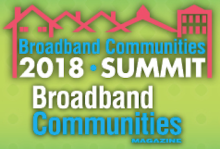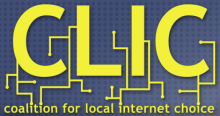Broadband Communities Summit 2018 Next Week! Still Time To Register!
Is it here already?! Next week is the 2018 Broadband Communities Summit in Austin, Texas. Will you be there? You can still register online for the the event; this year the discussions will concentrate on FIBER: Putting your Gigs To Work.
Check out the agenda for all the scheduled panels, lectures, and discussions.
There's still time to get there so you can see Christopher and other experts, such as Jim Baller, Joanne Hovis, Catharine Rice, and Deb Socia. This is an opportunity to ask experts the questions you've been pondering and hear opinions from different perspectives in the industry.
On May 1st at 3p.m., Christopher will be part of the "Economic Development Track Blue Ribbon Panel" along with Nicol Turner-Lee, Ph.D., from the Center for Technology Innovation Brookings Institution and Will Rhinehart, Director of Technology and Innovation Policy at the American Action Forum. Lev Gonick, CIO from Arizona State University, will be leading the discussion.
Look for Christopher to participate in other discussions and sit in on other panels. You can also check out who else will be speaking at the Summit; it’s a long list that covers a broad range of expertise.
If you're able to arrive by April 30th, you can make the Coalition for Local Internet Choice Special Program (CLIC). CLIC will to bring community leaders from different organizations and entities across the U.S. to discuss the growing importance of local authority. There will be a panel discussion on local authority and preemption featuring a talk about Westminster and their award winning partnership with Ting Internet. Christopher will also be part of the CLIC program - look for him.
The Summit only comes around once a year and it's a great time to get caught up and connect with new people. So much has happened in the past year, it will be a challenge to take it all in, but you'll definitely have fun trying.



